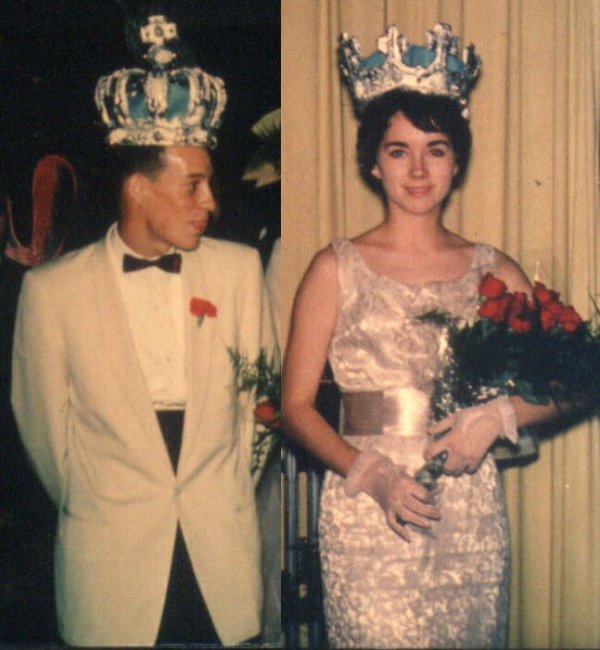
This piece was written by Stephanie Matthiessen.
I’m writing a novel about Michal, the first wife of David and the daughter of Saul. Don’t worry, no one else has heard of her either, unless maybe they’re from Israel. Someone recently asked me what the book is about and, instead of giving my usual, vague, I’d-rather-not-say answer, I actually told them. Spoiler: it’s about forgiveness. Unconditional forgiveness. I added the qualifier for fear one would assume it’s about personal atonement and self-improvement. It’s not. It’s not a self-help book in disguise. It’s a love story.
Michal and, of course, her much more famous father are very condemned people in Christian memory. They’re not so negatively remembered in the Jewish, which is interesting and worth noting. In my research, I found that the prevailing opinion is they got what they deserved. Literally damn them. Every excuse under the sun is made for David’s sins, from his not being directly against God to crimes of passion. His actions are always more forgivable and justifiable, but not those of Michal or Saul. No. Heaven forbid. A few more recent commentators and authors have tried to exonerate Saul and Michal by vilifying David, which irritates me just as much. In my very unqualified opinion that kind of misses the point. Bear with me while I, as briefly as possible, recount the Biblical narrative so I can make mine.
 Saul is plagued by fear from the very beginning. He clearly wasn’t looking to become king when he was out searching for his lost donkeys. Instead, he was so afraid that he hid himself when Samuel went to present him to the people as their God-anointed king. It then goes on to further paint us a picture of his fear and the taking of things into his own hands. He loses his kingship over a rather small mistake (1 Samuel 13). It’s actually the “wise and prudent” decision to be making, from a safe and logical perspective. We know he made it out of fear, which of course draws a contrast with David’s faith, but we usually like to forgive small mistakes, especially if committed out of fear, and we certainly want to be forgiven ourselves. Saul’s second life-altering sin is much larger and more damning and serves to further illustrate why he is being rejected (1 Samuel 15).
Saul is plagued by fear from the very beginning. He clearly wasn’t looking to become king when he was out searching for his lost donkeys. Instead, he was so afraid that he hid himself when Samuel went to present him to the people as their God-anointed king. It then goes on to further paint us a picture of his fear and the taking of things into his own hands. He loses his kingship over a rather small mistake (1 Samuel 13). It’s actually the “wise and prudent” decision to be making, from a safe and logical perspective. We know he made it out of fear, which of course draws a contrast with David’s faith, but we usually like to forgive small mistakes, especially if committed out of fear, and we certainly want to be forgiven ourselves. Saul’s second life-altering sin is much larger and more damning and serves to further illustrate why he is being rejected (1 Samuel 15).
After God and Samuel leave him, Saul is relentlessly tormented until his death (2 Samuel 1:9).[1] He becomes the worst version of himself and proceeds to commit increasing and more literally deadly sins. He tries to kill David several times, endlessly pursues him across the desert for probably about a decade, and then dies in defeat, still defending Israel. It’s not a pretty picture.
Up until his rejection, however, it is mildly perplexing what is so bad about him. Saul is, by all accounts, not a bad king. He’s actually pretty good (2 Samuel 1:17-27). The kingdom is loyal and unified, he successfully defends it, and no one tries to overthrow him. Peruse history for a minute and you’ll see that’s a decent record, especially for a first king. It speaks to something good that should not be ignored. But despite any and all good, there’s one glaring problem he can’t overcome. He’s human. And as such, sinful. Three thousand years later and he can’t live it down.
Then there is Michal. Saul’s younger daughter. She’s an interesting figure. Very enigmatic. She’s loving, bold, and brave, but also biting and harsh, if not arrogant. Just like someone else in this narrative, but we’ll ignore that like the plague. She has the distinction of being the only woman in the Bible whose love for a man is directly stated. And twice. It’s critical to the narrative, so I take it pretty seriously. Her father is very pleased to find this out and uses it as another opportunity to try to have David killed, this time by the Philistines. Saul then sends David on death’s errand to pay Michal’s bloody bride price of one hundred Philistine foreskins, and when David successfully returns with not one but two hundred foreskins, Saul has no choice but to let David marry his daughter (1 Samuel 18:25). Saul’s plan backfires in more ways than one, because not only does Saul now give David the political advantage of being the king’s son-in-law, but he also inadvertently allows Michal to get in his way, as he continues to attempt to kill David. Michal saves David’s life, helping him escape out the back window (1 Samuel 19:8-17).[2] She goes so far as to create a ruse, disguising the household idol to deceive her father into thinking David is ill. Needless to say, her father is not pleased when he finds this out, and she then lies, saying David threatened to kill her if she didn’t help him. Whether her father does or doesn’t believe her is not mentioned, and we don’t hear about her again until it’s stated in passing that she has been remarried, very illegally, to another man, and David has married two other women (1 Samuel 25:44 — the slow death).

Years later, after Michal’s father’s long-time-coming death/suicide, David becomes the King of Judah, and her surviving brother Ishbosheth becomes King of Israel. In the struggle, Abner, Saul’s commander/cousin defects to David and offers to bring him all of the tribes of Israel. David agrees but demands one thing: Michal, whom he claims on the basis of her unique bride price. It’s hard to deny that she is being used as a political pawn here. It’s the plight of many women. However, when she is taken from her second husband, who is completely distraught, she is silent (2 Samuel 3:14-16). She remains silent until after David’s move to Jerusalem when, on arguably the most momentous day of his reign, she viscously chews him out for his zealous dancing on the streets of Jerusalem in front of all of the people (2 Samuel 6:16). From the standpoint of favoring modest behavior, for which her father was known, she has a point, but she is ultimately in the wrong. She basically tells David that he’s acting like fool and not like a king, displaying himself, literally or metaphorically, for even the slaves of the slaves to see. She’s either doing this because she hates him now, which is a strong argument, or because she still loves him and thinks he’s destroying himself just like her father. It takes a little reading through the lines to see it that way, but it is a possibility. To my ear, they come across as a bickering couple who are hitting each other where it would hurt most. David’s words back to her are viscous as well. He’s right, but he’s not kind, and he’s certainly not being deaf and mute in this instance. It’s really the only time in the narrative we see him rebuke someone. We’re then told she’s barren[3] and never hear about her again, and David’s life goes on as it does.
Many commentators seem to find it hard to forgive her, but I find it hard to believe that David, this man after God’s own heart, held a bitter grudge against her for the rest of his life. He never condemned any of his children, one of whom staged an enormous revolt and tried to kill him, nor did he condemn Saul (2 Samuel 18:5). It’s not in his character. Maybe Michal hated him, but I doubt he hated her. It’s just something to consider instead of the obvious. However, if forgiveness and reconciliation occurred, we don’t know about it.
Saul and Michal’s lives are perfect examples of what happens when you are outside the bounds of grace. Theirs are tormented disasters you rather wish for death from. There was nothing Saul could do to reconcile himself with God. He lost, and he knew it. I think to say he felt the fall acutely would be a fair statement. In the face of the law there are no three strikes and you’re out. It’s once and done. No mercy. Michal, well, she got struck from both sides, first by her father and then by herself. I think that’s what happens to a lot of us. Jonathan was just completely screwed over; everyone agrees there.
David’s life is in sharp contrast since it’s lived inside of grace. He has an enviable faith and admirable character, but not always. He commits his fair share of sins, and they’re not exactly minor. Were he up to the same shenanigans today, he’d be in prison. In good company, but still in prison. He does suffer for his actions, but never what Saul suffered when, under the law, he really should have. It’s no wonder people hated him; it would be devastating to witness when you’re on the losing side. But I think it’s more than safe to say he knew how blessed he was. He talks a lot about how good he is, but also how unworthy he is. Considering the unique set of circumstances that were his life, I think he got it.
As for Saul and Michal and my version of this, I am, for Michal at least, completing the overwriting of grace because of David. He is a messianic figure of the Old Testament after all. If you’ve ever seen Kirikou and the Sorceress,[4] it’s in that vein. Forgiveness is not based on anything other than love. If it were, it could suddenly cease to be, and that would be the worst thing that could happen. Look at Saul. In the face of our iniquity and absolute inability to fix it, we desperately need the forgiveness Saul was denied and David received.
Mini Playlist
Flaws Olly Murs
Take My Hand The Cab
Bail Me Out All Time Low
Shed a Light Robin Schulz, David Guetta, & Cheat Codes
[1] I think the agony of his life can be summed up in this verse.
[2] You have no idea how many times I’ve ready this was a completely selfish act.
[3] I maintain this is purely allegorical. She can’t have any children, because her father’s descendants can’t sit on the throne.
[4] The best depiction of grace I’ve ever seen on film.

COMMENTS
Leave a Reply













